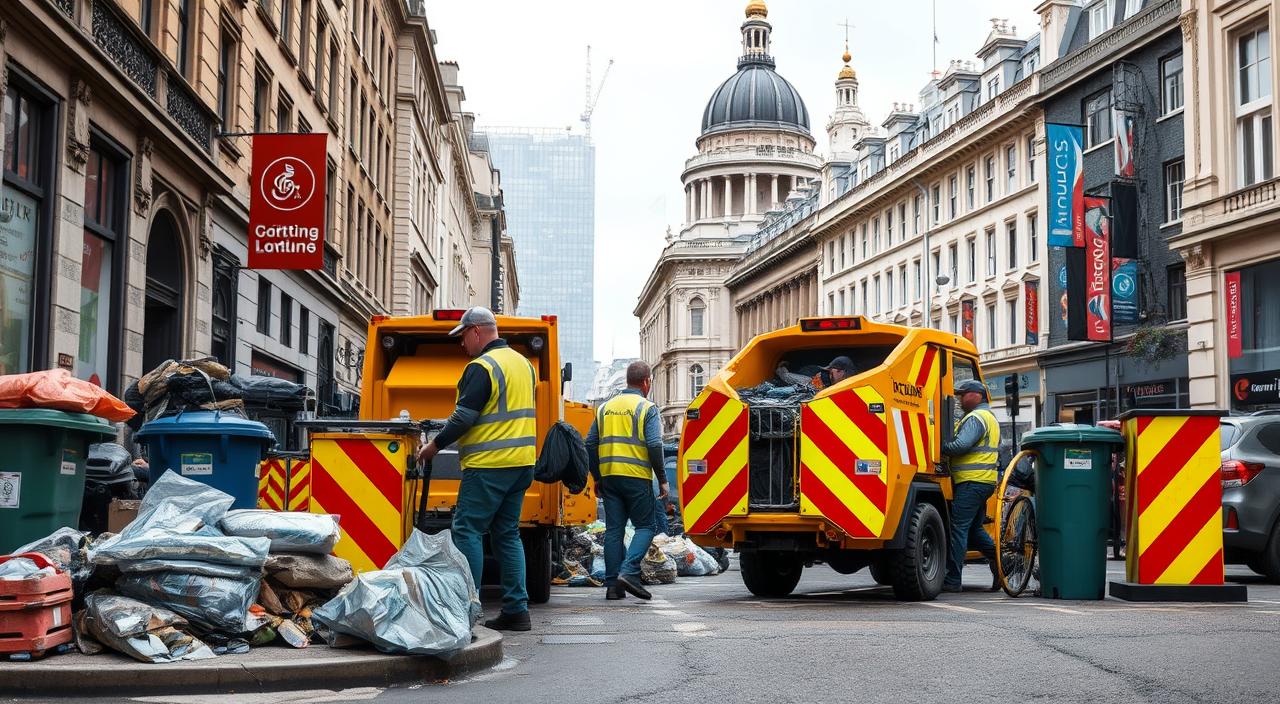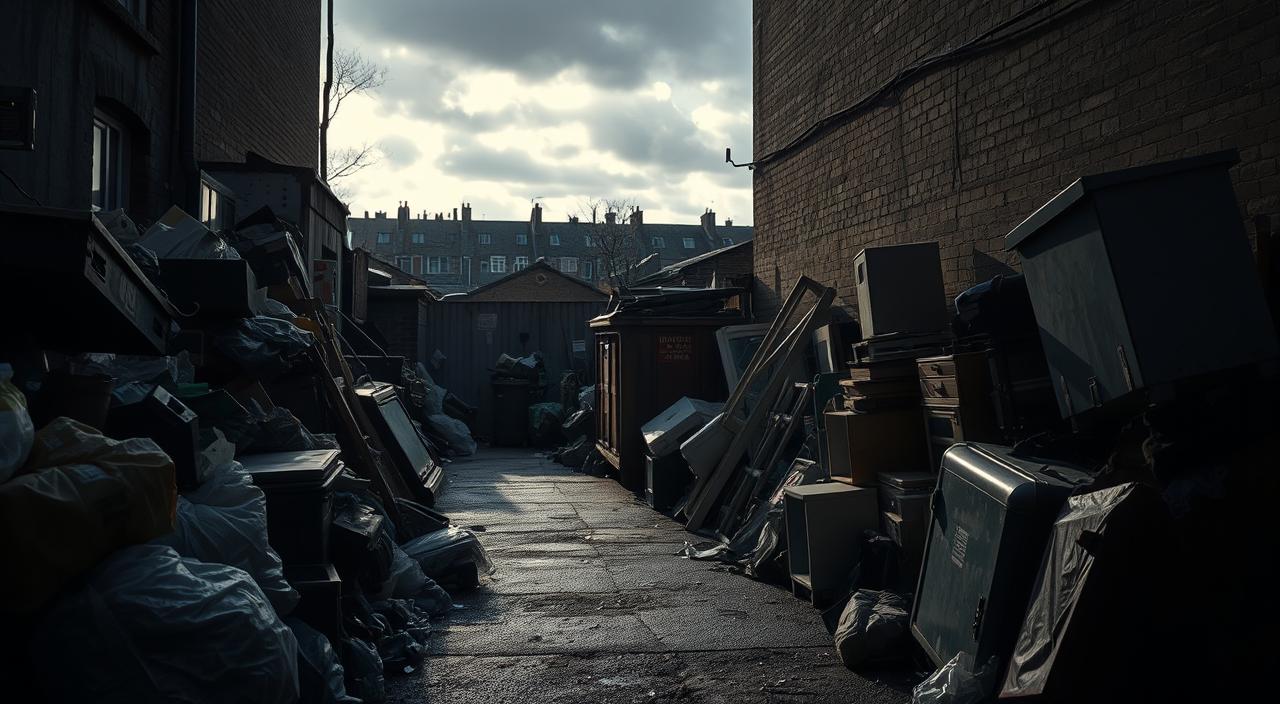Illegal waste dumping, or fly-tipping in London, has become an urgent environmental concern. While this act of discarding waste on roadsides, alleys, and footpaths might seem like a nuisance at first glance, it carries serious consequences for communities, public health, and the environment.

With several boroughs turning into dumping grounds, it’s essential to understand which areas are most affected and how professional waste removal services can intervene. From rapid response clean-ups to legal waste disposal, these services offer critical support in reclaiming London’s public and private spaces from mounting rubbish.
Key Takeaways
- Fly-tipping in London is rising, with public and private land increasingly targeted.
- Some boroughs face more dumping incidents due to accessibility and low surveillance.
- Unchecked fly-tipping impacts local ecosystems, drains public resources, and reduces property value.
- Professional waste removal services offer lawful, fast, and efficient clean-up solutions.
- Preventative measures, including community awareness and regular waste collection, are crucial.
What is Fly-Tipping and Why It Matters
Fly-tipping refers to the illegal disposal of waste without a valid licence or permission. This could range from small bags of household rubbish to large-scale dumping of building materials, white goods, or even hazardous chemicals.
While local councils investigate and clear fly-tipped waste from public land, private property owners are responsible for managing clean-up on their premises, often at personal cost.
Environmental and Social Impact of Fly-Tipping
The ripple effect of illegal dumping is wide-reaching:
- Public health risk: Piled rubbish attracts vermin and fosters disease.
- Pollution: Hazardous waste can seep into waterways and soil.
- Flood risk: Dumped waste blocks drainage systems, increasing flooding.
- Community degradation: Repeated fly-tipping leads to a neglected appearance, lower property values, and even higher crime rates.
- Economic cost: London boroughs spend millions annually on waste removal and enforcement.
Where Are the Fly-Tipping Hotspots in London?
Some areas are more prone to fly-tipping due to high population density, poorly lit alleys, unmonitored spaces, or abandoned lots. The following boroughs consistently report high numbers of fly-tipping cases:
| Borough | Notable Areas Affected | Annual Incidents (Est.) |
|---|---|---|
| Croydon | Selhurst, Thornton Heath | 25,000+ |
| Newham | East Ham, Forest Gate | 23,000+ |
| Brent | Stonebridge, Harlesden | 19,000+ |
| Haringey | Tottenham, Wood Green | 17,000+ |
| Southwark | Peckham, Camberwell | 16,000+ |
Source: Local Council Data & DEFRA Reports
These locations see higher-than-average dumping activities, especially in neglected alleyways, around derelict buildings, and near construction sites.
Fly-Tipping on Private vs Public Land
Illegal dumping affects both types of property differently:
| Location Type | Common Issues | Responsibility for Clearance |
|---|---|---|
| Public Parks & Streets | Rubbish left near bins, on pavements or roadside | Local Council |
| Private Alleys & Yards | Construction waste, furniture, white goods | Property Owner |
| Commercial Properties | Dumping during off-hours or in unsecured areas | Business or Property Manager |
| Agricultural Land | Industrial waste, tyres, chemicals | Landowner |
Landowners and businesses must arrange private clearance if the council cannot intervene.
Why Professional Waste Removal Services Are Essential

When faced with dumped rubbish on private or inaccessible land, calling a professional service offers multiple advantages:
1. Rapid Response Teams
Professional services respond quickly to clear dumped waste before it becomes a larger issue. This deters further dumping and prevents environmental harm.
2. Fully Licensed & Compliant
Certified removal companies comply with UK environmental regulations. They issue waste transfer notes, which legally document the safe transport and disposal of waste.
3. Safe Disposal of Hazardous Materials
Trained teams handle:
- Asbestos
- Paint and chemicals
- Appliances (fridges, TVs)
- Sharp or dangerous items
This ensures no legal or health risks fall on the landowner.
4. Recycling and Sustainability
Most waste collection services sort and divert rubbish away from landfill.
How to Report Fly-Tipping in London
If you encounter illegal waste dumping:
- Do not touch the waste, especially if it appears hazardous.
- Note the location, date, time, and take a photo if safe to do so.
- Report it via the council’s online portal or through the Love Clean Streets app.
Each borough has its own reporting and enforcement protocol. You can find direct links here:
What Can Businesses and Residents Do to Prevent Fly-Tipping?
Secure Waste Areas
Ensure bins are locked or stored in secure places. Avoid leaving large items like mattresses or fridges outside overnight.
Install Cameras or Motion Lights
Deterrents like CCTV or motion-sensitive lights can discourage illegal dumpers.
Use Scheduled Collection Services
Booking regular collections from a licensed rubbish removal company in London helps prevent rubbish from building up and attracting fly-tippers.
Get Involved in Community Clean-Up
Join or organise clean-up drives to create pride and accountability in the neighbourhood. Community vigilance is a powerful tool against persistent fly-tipping.
Real Case Study: Waste Removal on Private Land
A property owner in Hackney discovered a pile of construction debris, old tyres, and broken furniture dumped behind their business premises. The council was unable to assist as it was private land.
Within 24 hours of contacting a professional waste removal service:
- The area was cleared,
- A full waste transfer note was issued,
- The owner avoided potential fines for unmanaged waste.
This case highlights the speed and efficiency of using licensed professionals.
Conclusion: A Cleaner London Starts With Action
Fly-tipping in London won’t be solved overnight, but collective responsibility makes a measurable difference. Whether it’s reporting an incident, securing your bins, or hiring a waste removal expert, each step helps keep our streets clean.
By investing in professional removal services when needed, Londoners can tackle the problem effectively—especially when councils are overwhelmed or private property is affected. Fly-tipping isn’t just an eyesore; it’s a threat to health, safety, and our shared environment.
Let’s work together to reclaim our public spaces—legally, quickly, and responsibly.



